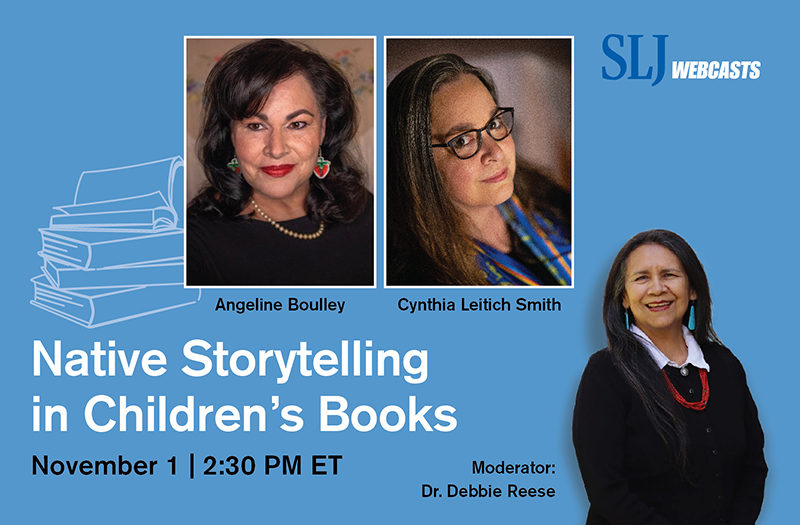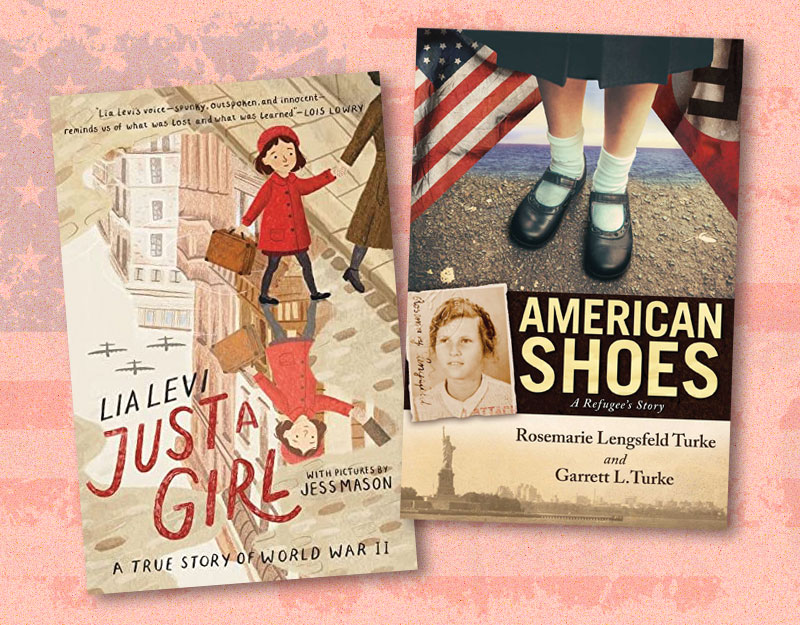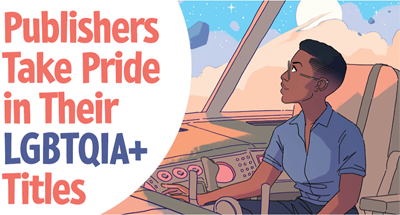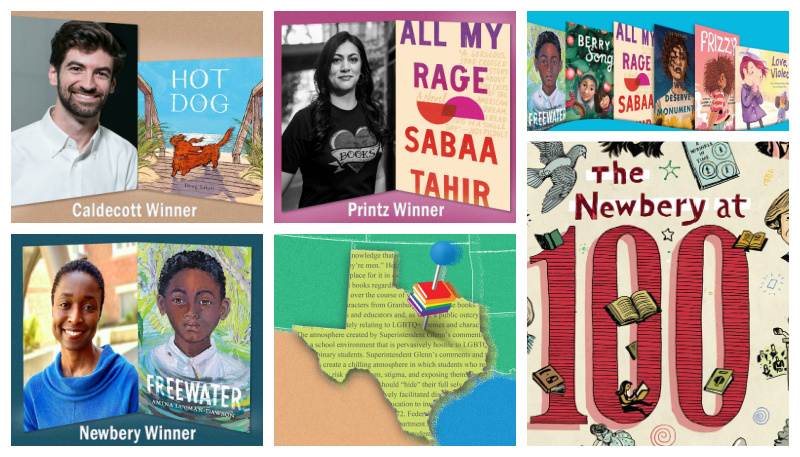Adrianna Cuevas Is Back with CUBA IN MY POCKET: The Interview
In 2020 I was not a great middle grade fiction reader. The pandemic was in full swing and I found that I had difficulty concentrating on a single book at a time. Many was the title I picked up and had to put down again. This is probably why I feel such affection towards THE TOTAL ECLIPSE OF NESTOR LOPEZ. It had all the trappings of an “issues” book. Boy living with his grandmother. Dad off to war. The army brat problem of traveling from town to town, never getting to keep any friends. A growing suspicion that the aforementioned grandmother is an animal-kidnapping witch. Wait, what?
I was instantly in love. That book got me through a dark time, and now I’m delighted to see that Ms. Cuevas returns with the not-at-all fantastical CUBA IN MY POCKET. Here’s a bit of an explanation for you:
ADVERTISEMENT
ADVERTISEMENT
“Following the success of her 2021 Pura Belpré Honor Book, THE TOTAL ECLIPSE OF NESTOR LOPEZ, author Adrianna Cuevas is back with CUBA IN MY POCKET, a sweeping emotional middle-grade historical novel. This timely immigrant story follows 12-year-old Cumba who leaves his family in Cuba to immigrate to the U.S. after the failed Bay of Pigs invasion solidifies Fidel Castro’s power in Cuba.
Inspired by her father’s journey immigrating to the United States, Adrianna sensitively explores Cumba’s feelings of isolation, homesickness, and uncertainty in an unfamiliar place—as well as the hostility he encounters in his adopted home. In a starred review, Booklist noted “Cuevas does an outstanding job of eliciting the confusing array of emotions Cumba feels as he is thrown into life in a new country.”
Seemed appropriate that I should find out just a little bit more about this book:
Betsy Bird: Thank you so much for joining me today! First and foremost, and before we go any farther, why don’t you give us a little background on the origins of CUBA IN MY POCKET. Where did this all begin for you? What are the origin stories of the tale?

Adrianna Cuevas: CUBA IN MY POCKET grew from a small scene I wrote in THE TOTAL ECLIPSE OF NESTOR LOPEZ. In my debut, Nestor complains to his abuelita about a bad day at school and he tells her she’d never understand what it’s like to have to start over all the time as a military kid. His grandmother then tells him her immigration story- that she was sent to the US by herself, not knowing any English or what might happen to her family back in Cuba. I drew from my father’s experience as a Cuban immigrant for this scene, but after writing it, I knew I didn’t want to leave my father’s entire history to just a small scene in a book with talking animals. I wanted to do his story justice.
BB: Speaking of which, in your last middle-grade novel THE TOTAL ECLIPSE OF NESTOR LOPEZ you set the book entirely in the present with more than a dash of the supernatural. CUBA IN MY POCKET, in contrast, is straight-up historical fiction. Did you find it easier, harder, or around the same level of difficulty to write in this genre instead? And did you have to conduct any research for this book?
AC: Dios mio, writing historical fiction was like trying to eat soup with a fork! My brain naturally gravitates toward ridiculous ideas so having to stay grounded in reality was difficult. I was also writing a story based on someone’s life and so staying true to my father’s experiences while also providing needed drama and tension was a delicate balance. Despite these differences between my debut contemporary fantasy and CUBA IN MY POCKET’s historical fiction, I did the same amount of research. For NESTOR, I had to do a lot of research about military families, animal trivia, and eclipses. To write CUBA IN MY POCKET, I interviewed several family members and read books by fellow Cuban-American authors that also portrayed the immigrant experience.
BB: I remember, as a child, discovering old newspapers in my grandmother’s house that discussed the Bay of Pigs and then watching my parents attempt to explain it to me. To date, I don’t think I’ve ever seen a nonfiction picture book cover the topic, possibly because of its complexity. How does one set it up as the inciting incident in a middle-grade novel?

AC: Providing appropriate and accurate historical context for young readers was one of my biggest challenges in writing historical fiction. As an author, I try to create openings that are engaging and engrossing but if a reader does not understand the larger setting, some of that tension and drama can be lost. I was also dealing with a twelve-year-old narrator who could not be expected to explain current events with depth and nuance. I chose to present the Bay of Pigs and the effects of Castro’s government through their personal implications for my characters rather than the larger geopolitical landscape so the reader would slowly understand the events that happened and how they affected Cumba’s family. I also highlighted my character’s feelings as they reacted to the events so that young readers who couldn’t fully understand the historical context might still connect to the universal emotions on display.
BB: So would you ever consider continuing Cumba’s story or is this a standalone title?
ADVERTISEMENT
ADVERTISEMENT
AC: CUBA IN MY POCKET is most certainly a standalone title. My father passed away last November so I’m no longer able to ask him all the tiny little questions that provided rich details for this book. It was such a special experience getting to interview my dad that I can’t imagine trying to continue this story without him. I’m satisfied to let CUBA IN MY POCKET stand on its own as a testament to my dad’s life.
BB: Was there anything you wanted to include in this book and had to leave out?
AC: I slipped in several family inside jokes so I had to hold myself back from including too many. It ensured my own continued entertainment as I read over my manuscript for the bajillionth time, but it might have confused the reader. For example, Cumba’s mother’s insistence that any ailment can be cured with water, her absolute fear of animals, and Cumba’s lament that she only makes soup are all things my family used to joke about with my abuela. In crafting my story, I definitely succumbed to simply amusing myself and my family provided ready fodder.
BB: I love that. Family jokes in books are the absolute best. Finally, what are you working on next?
AC: I have run as fast as my pastelito-fueled body will carry me away from historical fiction and jumped back into my comfy home of silliness, sarcasm, and magic. I’m planning stories with stolen slushie machines, possessed violins, disastrous fencing tournaments, and shape-shifting horses. Of course, lots of Cuban food, Spanish, and general ridiculousness will be included as well.
Great gobs of thanks to Adrianna for her patient answers to my questions and to Cynthia Lliguichuzhca and the folks at Macmillan for setting this up. CUBA IN MY POCKET is on shelves everywhere September 21st so place your reserves today!
Filed under: Interviews
About Betsy Bird
Betsy Bird is currently the Collection Development Manager of the Evanston Public Library system and a former Materials Specialist for New York Public Library. She has served on Newbery, written for Horn Book, and has done other lovely little things that she'd love to tell you about but that she's sure you'd find more interesting to hear of in person. Her opinions are her own and do not reflect those of EPL, SLJ, or any of the other acronyms you might be able to name. Follow her on Twitter: @fuseeight.
ADVERTISEMENT
ADVERTISEMENT
SLJ Blog Network
The Moral Dilemma of THE MONSTER AT THE END OF THIS BOOK
Winnie-The-Pooh | Review
Parsing Religion in Public Schools
ADVERTISEMENT







